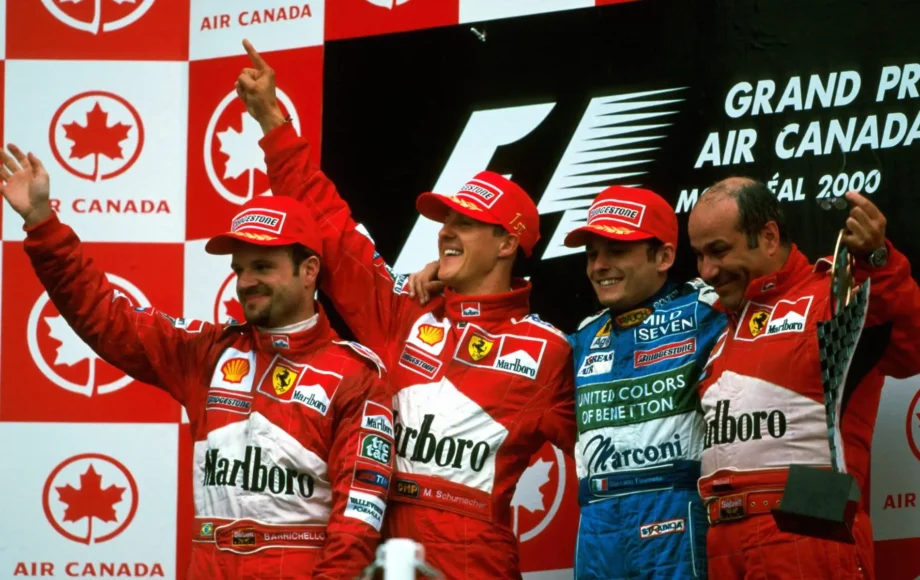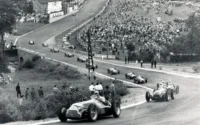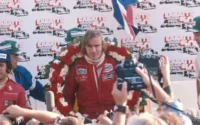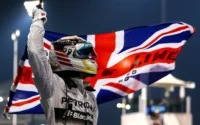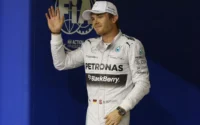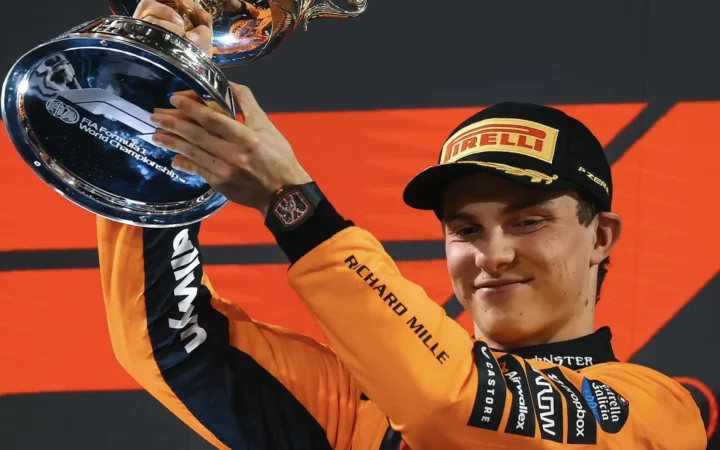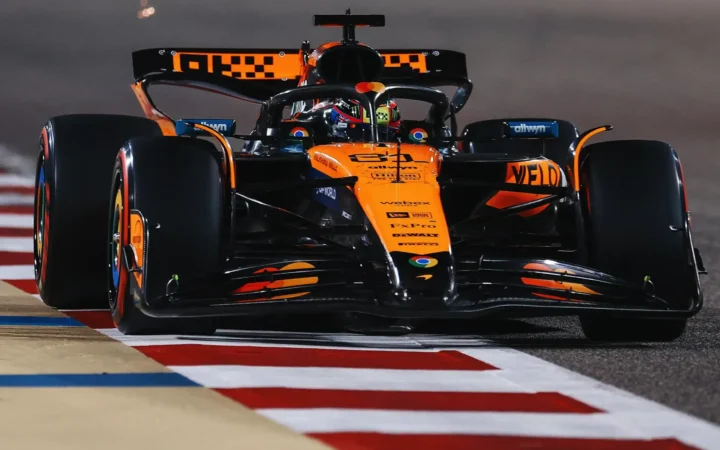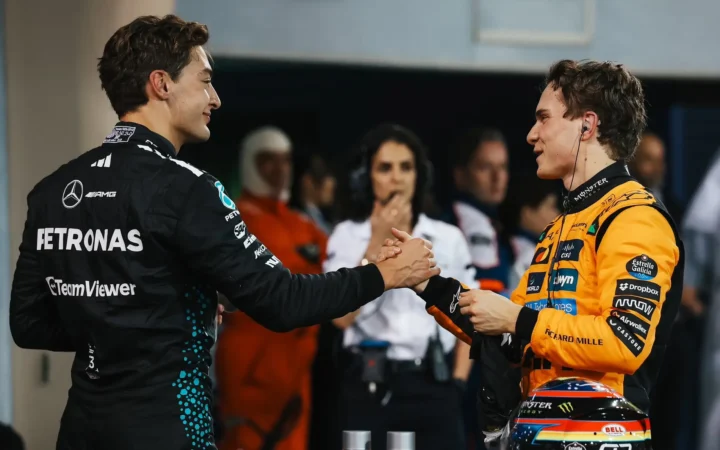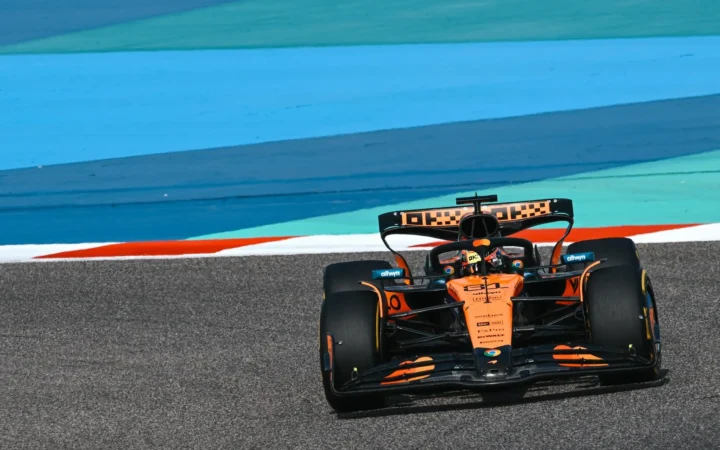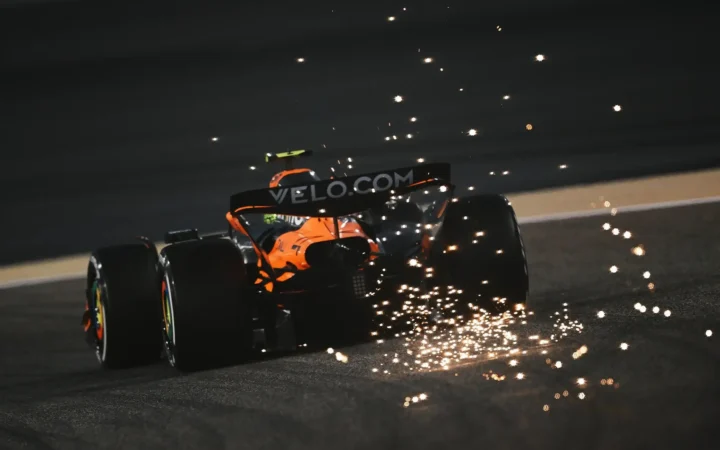What happened on this day, June 18 in Formula 1 history? Find out interesting facts and stories about Formula 1 on this day.
1936
On 18 June 1936, New Zealand’s only F1 world champion, Denny Hulme, was born. Nicknamed “The Bear” for his coy behaviour but quick temper, he was deeply respected by those who knew him well.
In 1964, he finished second in the Formula Two series to Jack Brabham, later joining Brabham’s own Formula One team in 1965. His debut season was promising, highlighted by a fourth-place finish at the 1965 French Grand Prix in Clermont-Ferrand. By 1967, Hulme achieved his first Formula One victory at Monaco, added another win at the Nurburgring, and claimed the 1967 World Championship over Brabham for his only Drivers’ title. That same year, he also competed in the CanAm sports car series with Bruce McLaren‘s team before moving to McLaren‘s Formula One team in 1968; Hulme raced there until his retirement in 1975, securing six more wins.
Alongside his championship, his biggest successes included a third-place finish in the 1968 season and a 1972 season that featured a win in Kyalami, two runner-up finishes, and four third-place results. His last win was at the 1973 Swedish Grand Prix with the iconic McLaren M23 chassis. Hulme also found considerable success in CanAm, winning the championship in 1968 and 1970. He returned to racing casually in the 1990s and tragically passed away from a heart attack during a touring car race at Bathurst on 4 October 1992.
1950
The 1950 Belgian Grand Prix, part of the first World Championship season, was dominated by the Alfa Romeo trio of Nino Farina, Juan Manuel Fangio, and Luigi Fagioli. Raymond Sommer briefly led in his Talbot-Lago while the Alfas pitted, but his engine failed soon after. Ascari then led briefly before the Alfas regained the front positions, culminating in a win for Fangio, followed by Farina and Fagioli.
Full Race Report
1950 Belgian Grand Prix Race Results
| Pos | No | Driver | Car | Laps | Time/retired | Pts |
|---|---|---|---|---|---|---|
| 1 | 10 | Juan Manuel Fangio | Alfa Romeo | 35 | 2:47:26.000 | 8 |
| 2 | 12 | Luigi Fagioli | Alfa Romeo | 35 | +14.000s | 6 |
| 3 | 14 | Louis Rosier | Talbot-Lago | 35 | +139.000s | 4 |
| 4 | 8 | Nino Farina | Alfa Romeo | 35 | +245.000s | 4 |
| 5 | 4 | Alberto Ascari | Ferrari | 34 | +1 lap | 2 |
| 6 | 2 | Luigi Villoresi | Ferrari | 33 | +2 laps | 0 |
| 7 | 22 | Pierre Levegh | Talbot-Lago | 33 | +2 laps | 0 |
| 8 | 24 | Johnny Claes | Talbot-Lago | 32 | +3 laps | 0 |
| 9 | 26 | Geoff Crossley | Alta | 30 | +5 laps | 0 |
| 10 | 30 | Toni Branca | Maserati | 29 | +6 laps | 0 |
| NC | 20 | Eugene Chaboud | Talbot-Lago | 22 | DNF | 0 |
| NC | 6 | Raymond Sommer | Talbot-Lago | 20 | DNF | 0 |
| NC | 16 | Philippe Etancelin | Talbot-Lago | 15 | DNF | 0 |
| NC | 18 | Yves Giraud-Cabantous | Talbot-Lago | 2 | DNF | 0 |
1960
Misfortune came knocking for Stirling Moss a day before the 1960 Belgian Grand Prix, who met with an accident during practice in his Rob Walker-entered Lotus, which rolled over a grass bank and threw him clear, resulting in broken legs and a broken nose. Another Lotus, driven by Mike Taylor, crashed due to a steering fault, jumped a ditch, and plunged into woods, leaving him with broken ribs. Despite considering withdrawal, Lotus continued after flying in replacement parts from the UK. Tragically, the following day, Alan Stacey lost his life when his Lotus crashed.
1960
Al Herman tragically died after sustaining severe injuries in a Midget car accident at the West Haven Speedway. He had competed in five Grand Prix, all at Indianapolis, with his highest finish being 11th in the 1955 race. A result that earned him “Rookie of the Year.”
1961
The 1961 Belgian Grand Prix witnessed a Ferrari sweep, with Phil Hill from California taking the win and moving into the lead in the 1961 Drivers’ Championship, followed by Wolfgang von Trips in second and Richie Ginther taking third. Fourth place went to another Ferrari driver, Olivier Gendebien.
This was the last time any constructor achieved this score in F1 history. Of the four works Ferraris, three cars were painted red in the tradition of rosso corsa, the national racing colour of Italy, and Gendebien’s car was painted in a Belgian racing yellow.
1961 Belgian Grand Prix Race Results
| Pos | No | Driver | Car | Laps | Time/retired | Pts |
|---|---|---|---|---|---|---|
| 1 | 4 | Phil Hill | Ferrari | 30 | 2:03:03.800 | 9 |
| 2 | 2 | Wolfgang von Trips | Ferrari | 30 | +0.700s | 6 |
| 3 | 6 | Richie Ginther | Ferrari | 30 | +19.500s | 4 |
| 4 | 8 | Olivier Gendebien | Ferrari | 30 | +45.600s | 3 |
| 5 | 24 | John Surtees | Cooper Climax | 30 | +86.800s | 2 |
| 6 | 20 | Dan Gurney | Porsche | 30 | +91.000s | 1 |
| 7 | 18 | Jo Bonnier | Porsche | 30 | +167.100s | 0 |
| 8 | 14 | Stirling Moss | Lotus Climax | 30 | +235.600s | 0 |
| 9 | 40 | Jackie Lewis | Cooper Climax | 29 | +1 lap | 0 |
| 10 | 44 | Masten Gregory | Cooper Climax | 29 | +1 lap | 0 |
| 11 | 22 | Carel Godin de Beaufort | Porsche | 28 | +2 laps | 0 |
| 12 | 34 | Jim Clark | Lotus Climax | 24 | +6 laps | 0 |
| 13 | 38 | Tony Brooks | BRM Climax | 24 | +6 laps | 0 |
| NC | 36 | Graham Hill | BRM Climax | 24 | DNF | 0 |
| NC | 26 | Maurice Trintignant | Cooper Maserati | 23 | DNF | 0 |
| NC | 46 | Lorenzo Bandini | Cooper Maserati | 20 | DNF | 0 |
| NC | 28 | Jack Brabham | Cooper Climax | 12 | DNF | 0 |
| NC | 12 | Lucien Bianchi | Lotus Climax | 9 | DNF | 0 |
| NC | 32 | Innes Ireland | Lotus Climax | 9 | DNF | 0 |
| NC | 30 | Bruce McLaren | Cooper Climax | 9 | DNF | 0 |
| NC | 10 | Willy Mairesse | Lotus Climax | 7 | DNF | 0 |
1967
Eagle driver Dan Gurney clinched the 1967 Belgian Grand Prix, overtaking Jackie Stewart in a BRM after a dramatic start that saw the Lotus of Graham Hill stall and John Surtees‘ Honda engine explode while Michael Parkes’ Ferrari flipped. Doctors considered amputating his legs, and he was in a coma for a week. He survived, but had broken both of his legs. Parkes never raced in Formula One again.
Stewart faced his own challenges, struggling with a gearbox issue that forced him to manually hold his car in gear for the last ten laps. He would finish second behind Gurney, while the Ferrari of Chris Amon finished third.
Excluding the Indianapolis 500, this is the only win for a USA-built car as well as one of only two wins of an American-licensed constructor in Formula One.
1967 Belgian Grand Prix Race Results
| Pos | No | Driver | Car | Laps | Time/retired | Pts |
|---|---|---|---|---|---|---|
| 1 | 36 | Dan Gurney | Eagle Weslake | 28 | 1:40:49.400 | 9 |
| 2 | 14 | Jackie Stewart | BRM | 28 | +63.000s | 6 |
| 3 | 1 | Chris Amon | Ferrari | 28 | +100.000s | 4 |
| 4 | 29 | Jochen Rindt | Cooper Maserati | 28 | +133.900s | 3 |
| 5 | 12 | Mike Spence | BRM | 27 | +1 lap | 2 |
| 6 | 21 | Jim Clark | Lotus Ford | 27 | +1 lap | 1 |
| 7 | 34 | Jo Siffert | Cooper Maserati | 27 | +1 lap | 0 |
| 8 | 19 | Bob Anderson | Brabham Climax | 26 | +2 laps | 0 |
| 9 | 30 | Pedro Rodriguez | Cooper Maserati | 25 | DNF | 0 |
| 10 | 32 | Guy Ligier | Cooper Maserati | 25 | +3 laps | 0 |
| NC | 2 | Ludovico Scarfiotti | Ferrari | 24 | +4 laps | 0 |
| NC | 25 | Jack Brabham | Brabham Repco | 15 | DNF | 0 |
| NC | 26 | Denny Hulme | Brabham Repco | 14 | DNF | 0 |
| NC | 39 | Jo Bonnier | Cooper Maserati | 10 | DNF | 0 |
| NC | 22 | Graham Hill | Lotus Ford | 3 | DNF | 0 |
| NC | 17 | Chris Irwin | BRM | 1 | DNF | 0 |
| NC | 7 | John Surtees | Honda | 1 | DNF | 0 |
| NC | 3 | Mike Parkes | Ferrari | 0 | DNF | 0 |
1989
At the 1989 Canadian Grand Prix, Williams driver Thierry Boutsen celebrated his first of three F1 victories. However, the race was overshadowed by Nigel Mansell, who was disqualified during the parade lap for ignoring pit lane warning lights. Ayrton Senna seemed poised to win until his McLaren failed, emitting smoke with just three laps left.
Boutsen’s Italian teammate Riccardo Patrese finished second with fellow Italian, Andrea de Cesaris, third in a Dallara.
1989 Canadian Grand Prix Race Results
| Pos | No | Driver | Car | Laps | Time/retired | Pts |
|---|---|---|---|---|---|---|
| 1 | 5 | Thierry Boutsen | Williams Renault | 69 | 2:01:24.073 | 9 |
| 2 | 6 | Riccardo Patrese | Williams Renault | 69 | +30.007s | 6 |
| 3 | 22 | Andrea de Cesaris | Dallara Ford | 69 | +96.649s | 4 |
| 4 | 11 | Nelson Piquet | Lotus Judd | 69 | +101.484s | 3 |
| 5 | 25 | Rene Arnoux | Ligier Ford | 68 | +1 lap | 2 |
| 6 | 21 | Alex Caffi | Dallara Ford | 67 | +2 laps | 1 |
| 7 | 1 | Ayrton Senna | McLaren Honda | 66 | DNF | 0 |
| 8 | 38 | Christian Danner | Rial Ford | 66 | +3 laps | 0 |
| NC | 31 | Roberto Moreno | Coloni Ford | 57 | DNF | 0 |
| NC | 9 | Derek Warwick | Arrows Ford | 40 | DNF | 0 |
| NC | 3 | Jonathan Palmer | Tyrrell Ford | 35 | DNF | 0 |
| NC | 17 | Nicola Larini | Osella Ford | 33 | DNF | 0 |
| NC | 16 | Ivan Capelli | March Judd | 28 | DNF | 0 |
| NC | 30 | Philippe Alliot | Lola Lamborghini | 26 | DNF | 0 |
| NC | 36 | Stefan Johansson | Onyx Ford | 13 | DNF | 0 |
| NC | 24 | Luis Perez-Sala | Minardi Ford | 11 | DNF | 0 |
| NC | 15 | Mauricio Gugelmin | March Judd | 11 | DNF | 0 |
| NC | 28 | Gerhard Berger | Ferrari | 6 | DNF | 0 |
| NC | 40 | Gabriele Tarquini | AGS Ford | 6 | DNF | 0 |
| NC | 10 | Eddie Cheever | Arrows Ford | 3 | DNF | 0 |
| NC | 2 | Alain Prost | McLaren Honda | 2 | DNF | 0 |
2000
Michael Schumacher and Rubens Barrichello secured a 1-2 finish for Ferrari at the 2000 Canadian Grand Prix. David Coulthard experienced a setback, finishing seventh due to a stop-go penalty after his McLaren team overran the permitted work time on the grid. In the race’s final stages, Barrichello played a defensive role for Schumacher, who later acknowledged, “He’s a good man … one day I will pay him back.” The Benetton of Giancarlo Fisichella took third.
The win took Schumacher’s win tally to 40 races. He would retire on 91 race wins in 2012.
Formula One History Recommends
2000 Canadian Grand Prix Race Results
| Pos | No | Driver | Car | Laps | Time/retired | Pts |
|---|---|---|---|---|---|---|
| 1 | 3 | Michael Schumacher | Ferrari | 69 | 1:41:12.313 | 10 |
| 2 | 4 | Rubens Barrichello | Ferrari | 69 | +0.174s | 6 |
| 3 | 11 | Giancarlo Fisichella | Benetton Playlife | 69 | +15.365s | 4 |
| 4 | 1 | Mika Hakkinen | McLaren Mercedes | 69 | +18.561s | 3 |
| 5 | 19 | Jos Verstappen | Arrows Supertec | 69 | +52.208s | 2 |
| 6 | 6 | Jarno Trulli | Jordan Mugen Honda | 69 | +61.687s | 1 |
| 7 | 2 | David Coulthard | McLaren Mercedes | 69 | +62.216s | 0 |
| 8 | 23 | Ricardo Zonta | BAR Honda | 69 | +70.455s | 0 |
| 9 | 12 | Alexander Wurz | Benetton Playlife | 69 | +79.899s | 0 |
| 10 | 16 | Pedro Diniz | Sauber Petronas | 69 | +114.544s | 0 |
| 11 | 10 | Jenson Button | Williams BMW | 68 | +1 lap | 0 |
| 12 | 21 | Gaston Mazzacane | Minardi Fondmetal | 68 | +1 lap | 0 |
| 13 | 7 | Eddie Irvine | Jaguar Cosworth | 66 | +3 laps | 0 |
| 14 | 9 | Ralf Schumacher | Williams BMW | 64 | DNF | 0 |
| 15 | 22 | Jacques Villeneuve | BAR Honda | 64 | DNF | 0 |
| 16 | 20 | Marc Gene | Minardi Fondmetal | 64 | DNF | 0 |
| NC | 18 | Pedro de la Rosa | Arrows Supertec | 48 | DNF | 0 |
| NC | 17 | Mika Salo | Sauber Petronas | 42 | DNF | 0 |
| NC | 14 | Jean Alesi | Prost Peugeot | 38 | DNF | 0 |
| NC | 15 | Nick Heidfeld | Prost Peugeot | 34 | DNF | 0 |
| NC | 5 | Heinz-Harald Frentzen | Jordan Mugen Honda | 32 | DNF | 0 |
| NC | 8 | Johnny Herbert | Jaguar Cosworth | 14 | DNF | 0 |
2023
The 2023 Canadian Grand Prix witnessed Max Verstappen of Red Bull Racing secure pole, dominate the race, leading all 70 laps, and clinch his 41st career victory, equalling Ayrton Senna‘s win tally. This triumph also saw Red Bull celebrate its 100th win in Formula One as a team. Fernando Alonso in the Aston Martin finished second, securing his sixth podium in the first eight races of the season, while Mercedes‘ Lewis Hamilton claimed third, his second consecutive podium finish in 2023.
Further down the pack Williams‘ Alexander Albon finished seventh, the team’s best result since 2021. Ferrari’s Charles Leclerc and Carlos Sainz finished fourth and fifth, with Leclerc securing his second-best result of the season. Sergio Perez in the sister Red Bull Racing secured sixth place and recorded the fastest lap of the race.
2023 Canadian Grand Prix Race Results
| Pos | No | Driver | Car | Laps | Time/retired | Pts |
|---|---|---|---|---|---|---|
| 1 | 1 | Max Verstappen | Red Bull Racing Honda RBPT | 70 | 1:33:58.348 | 25 |
| 2 | 14 | Fernando Alonso | Aston Martin Aramco Mercedes | 70 | +9.570s | 18 |
| 3 | 44 | Lewis Hamilton | Mercedes | 70 | +14.168s | 15 |
| 4 | 16 | Charles Leclerc | Ferrari | 70 | +18.648s | 12 |
| 5 | 55 | Carlos Sainz | Ferrari | 70 | +21.540s | 10 |
| 6 | 11 | Sergio Perez | Red Bull Racing Honda RBPT | 70 | +51.028s | 9 |
| 7 | 23 | Alexander Albon | Williams Mercedes | 70 | +60.813s | 6 |
| 8 | 31 | Esteban Ocon | Alpine Renault | 70 | +61.692s | 4 |
| 9 | 18 | Lance Stroll | Aston Martin Aramco Mercedes | 70 | +64.402s | 2 |
| 10 | 77 | Valtteri Bottas | Alfa Romeo Ferrari | 70 | +64.432s | 1 |
| 11 | 81 | Oscar Piastri | McLaren Mercedes | 70 | +65.101s | 0 |
| 12 | 10 | Pierre Gasly | Alpine Renault | 70 | +65.249s | 0 |
| 13 | 4 | Lando Norris | McLaren Mercedes | 70 | +68.363s | 0 |
| 14 | 22 | Yuki Tsunoda | AlphaTauri Honda RBPT | 70 | +73.423s | 0 |
| 15 | 27 | Nico Hulkenberg | Haas Ferrari | 69 | +1 lap | 0 |
| 16 | 24 | Zhou Guanyu | Alfa Romeo Ferrari | 69 | +1 lap | 0 |
| 17 | 20 | Kevin Magnussen | Haas Ferrari | 69 | +1 lap | 0 |
| 18 | 21 | Nyck De Vries | AlphaTauri Honda RBPT | 69 | +1 lap | 0 |
| NC | 63 | George Russell | Mercedes | 53 | DNF | 0 |
| NC | 2 | Logan Sargeant | Williams Mercedes | 6 | DNF | 0 |
| Note – Perez scored an additional point for setting the fastest lap of the race. Norris received a five-second time penalty for unsportsmanlike behaviour. | ||||||
F1 Driver Birthdays 18 June
| Birthday | F1 Driver |
|---|---|
| 18 June 1918 | Frank Mundy (d. 2009) |
| 18 June 1936 | Denny Hulme (d. 1992) |
| Birthday | F1 Mentions |
|---|---|
| 18 June 1946 | Gordon Murray British car designer for Brabham from 1969 to 1986 and for McLaren from 1987 to 1991. |
F1 Driver Deaths 18 June
| Death | F1 Driver |
|---|---|
| 18 June 1960 | Al Herman (b. 1927) |
| 18 June 1967 | Geki (Giacomo Russo) (b. 1937) |
| 18 June 1977 | Franco Rol (b. 1902) |
Seen in:

